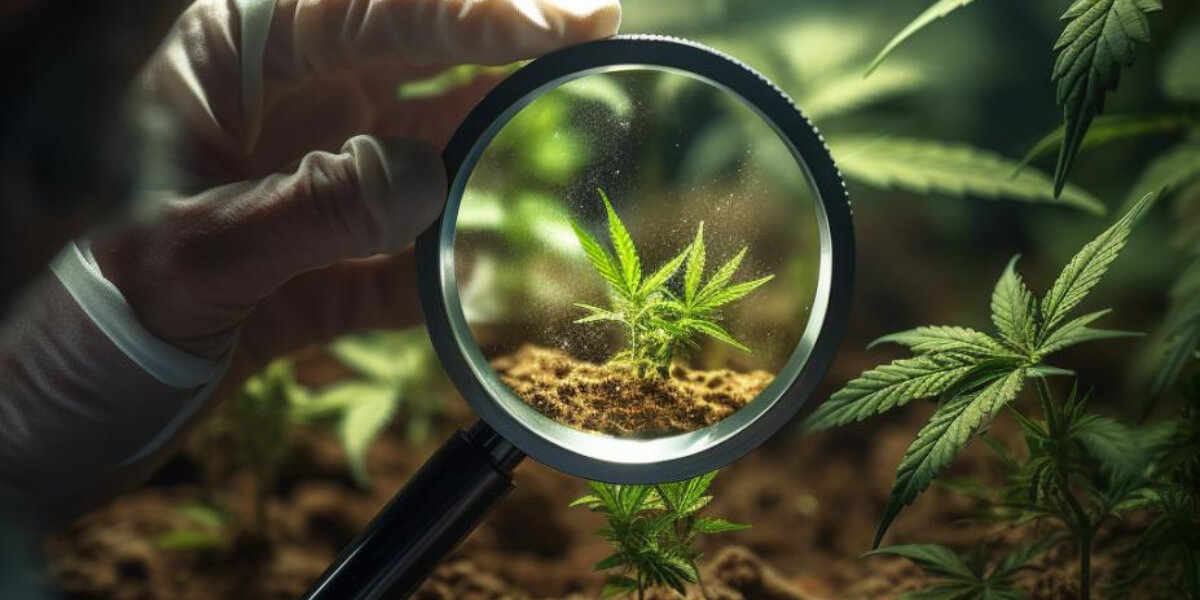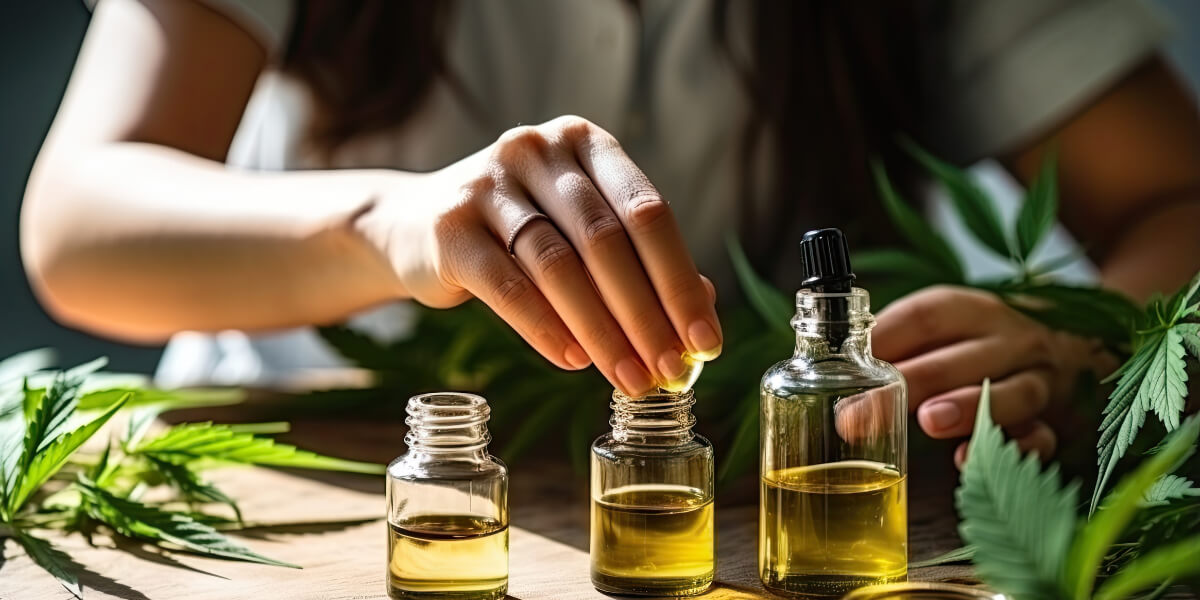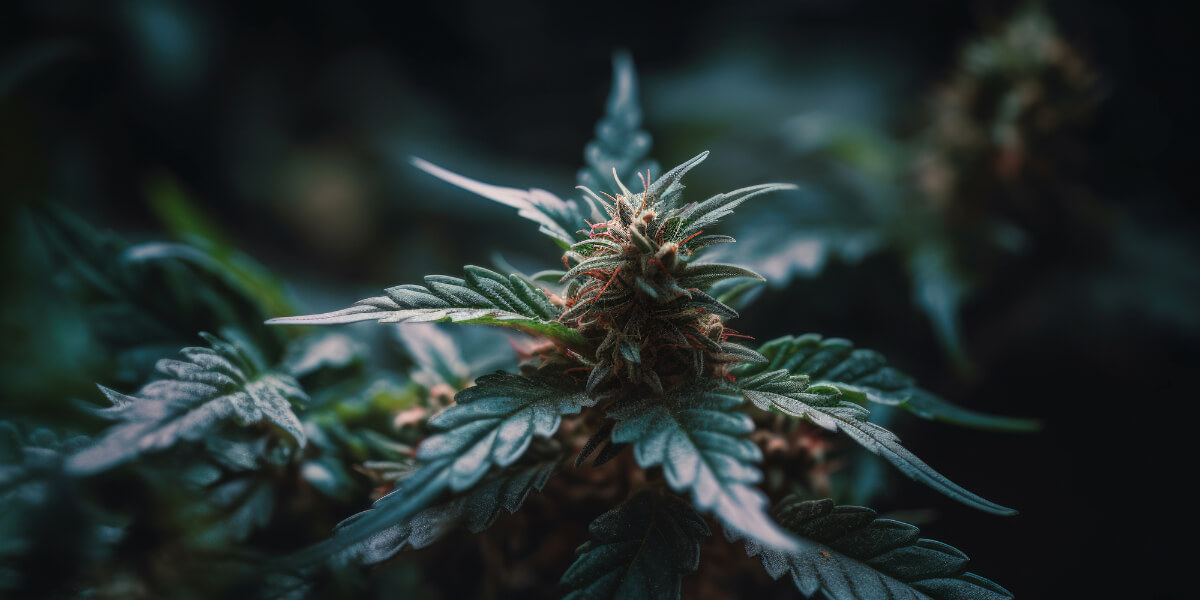THCa is a compound found naturally in cannabis plants. It’s what’s called a ‘precursor’ to THC, the well-known compound causing the ‘high’ of cannabis. THCa isn’t intoxicating, but even still, it’s vital to the healing benefits of cannabis. In this piece, we’ll explore what is THCa, the differences between THC vs THCa, what they’re used for, how decarboxylation works, and ways to use them.
What’s THCa?
When learning about the vast world of cannabis, one important term appears everywhere: THCa. But what is THCa? Short for tetrahydrocannabinol acid, THCa is a cannabinoid in raw, unprocessed cannabis plants. THCa hangs out in the trichomes—tiny, resinous spots on cannabis flowers and leaf surfaces. How much THCa is there? Well, it depends on what cannabis strain you have and how it was grown.
Labeled THCa because of the carboxylic acids it carries, it’s one intriguing component in the cannabis plant’s complex chemistry. THC vs THCa share the same molecular formula but have different chemical compounds. This difference means THCa doesn’t affect cannabinoid receptors in the body’s endocannabinoid system as much as THC does. Instead, THCa interacts with our body’s enzymes and receptors, changing patterns of bodily functions, which might offer health benefits.
Curiously, THCa isn’t found only in cannabis, and that’s one of the most interesting aspects of learning what is THCa. Smaller amounts appear in other plants, like hemp and some types of Echinacea. That said, cannabis is still where most THCa comes from because it’s more plentiful there.
Potential Therapeutic Benefits of THCA
Now that we understand the basics of what is THCa, let’s talk about the potential therapeutic benefits of THCa. Studies hint that it could have inflammation-fighting abilities. This makes it helpful for handling issues like arthritis and other swelling-related diseases. Plus, THCa seems good at calming nausea and vomiting. This means it might be useful for those getting chemo or dealing with gut troubles.
Apart from that, some research suggests THCa can support brain health and perhaps guard against brain issues like Alzheimer’s and Parkinson’s. THCa may stop the growth of cancer cells as well, early research shows, and as we keep learning about cannabis and its elements, people are digging deeper into what THCa might do. Thanks to ongoing research and findings, this still-mysterious part of cannabis might have more medical and therapeutic uses yet unseen.
The Decarboxylation Process: How THCa converts to THC
The way cannabis changes when heated is called decarboxylation. During this decarboxylation process, THCa turns into THC, also known as delta-9 THC, and becomes psychoactive. This change is key for using cannabis products for their psychoactive impact. It happens naturally when you smoke or vaporize cannabis because of the heat. But you can also make it happen with certain cooking tricks, like baking or cooking with cannabis oils.
THCA vs THC: What is the Difference
THCa isn’t the same as THC. THC causes the mind-altering effects linked with cannabis consumption. Raw THCa doesn’t do this, which simply means that raw cannabis won’t give you the same ‘high’ as THC does.
In other words, THCa vs THC differ mainly in how, or if, they alter your mental state. For some people, THC fits the bill. Others might want the potential benefits of THCa, but without a mind-altering impact.
THC vs THCa: Consumption Methods
Different methods are available to consume cannabis based on whether you prefer THC-rich vs THCa-rich products.
● About THCa-Rich Products
For those keen on possible therapeutic uses of THCa products without the mind-altering effects, raw cannabis can be eaten. Raw cannabis parts leaves, stems, and buds, have untouched THCa. Nevertheless, the absorption rate of raw THCa might be lower than that of decarboxylated THC.
THCa tinctures and extracts present another means to include THCa in your health regimen. These items are produced by extracting THCa from cannabis plants and mixing it with a carrier oil, making dosage precise and simple.
● About THC-Rich Products
Smoking or vaporizing decarboxylated cannabis enables THC consumption. This technique efficiently sends THC into the bloodstream, creating instant effects. For leisure users seeking the mind-altering properties of THC, smoking cannabis is quite popular.
Other than that, consuming THC-rich items like edibles or capsules results in a delayed onset of effects but can lead to more potent and lasting experiences.
What is THCA flower
Basically, THCA flower is cannabis buds with high levels of THCa and slight THC levels. These strains are grown for possible therapeutic benefits in the THCA flower and are appreciated by people desiring relief without the psychoactive effects linked with THC-rich products.
Does THCA Make You High?
No, THCa doesn’t get you high. It only becomes mind-altering when it changes to THC. This change happens through the process mentioned above, called decarboxylation.
Still, it’s worth noting that everybody reacts in their own way to cannabinoids. THCa, in general, doesn’t make you high. That said, some people might feel slightly mind-altered if they take a high dose. However, the impact can’t match up to THC’s.
THCA vs THC: Legal Considerations
The legality of THCa vs THC isn’t the same everywhere. It depends on rules made by international bodies, and state and federal laws. Usually, THC is controlled whereas THCa is exempt from control. That’s because THCa isn’t as psychoactive as THC is. However, it’s key to know the exact laws in your area so you can comply with requirements and regulations.
In Conclusion
THCa can be found aplenty in raw cannabis but it doesn’t get you high, yet it interacts with your body’s internal cannabinoid system and influences different body functions. Once aware of how THCa and THC work, how they’re used, what decarboxylation means, and the consumption methods, folk can make sure they’re using cannabis the right way, achieving the health benefits they aim for.
As we learn more about THCa, we hope to uncover more about its healing properties and uses in medicine. Whether seeking relief through nonhigh-causing THCa or experiencing the high from THC, understanding THCa is vital in navigating the rich world of cannabis.



